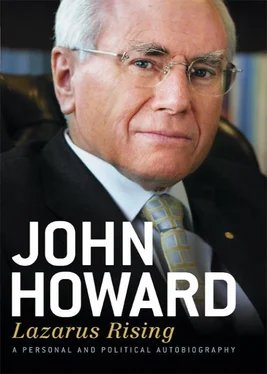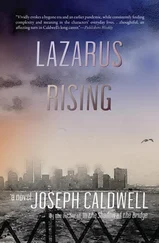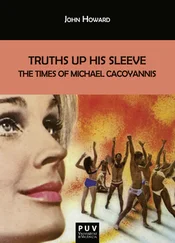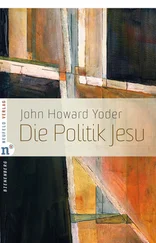Fortunately, Fraser responded to my concern, acknowledging that too many expenditure decisions had been taken which added to the budget deficit. We met in his office and he immediately suggested changes to decisions already taken, and some other measures which would help bring the prospective deficit back to more manageable limits. We would still end up with a very expansionary budget, but it would not be as bad as had seemed likely a short while before.
I brought down the budget on 17 August 1982. It was attacked as too expansionary, and breaking with the economic doctrine the Government had been enunciating for many years. This was the central political dilemma we faced. For years we had preached the virtue of expenditure restraint and reduced deficits, yet all of a sudden we were saying that the solution to the nation’s economic problems lay in more government spending. It confused the public.
So much for economic and political theory; the public was more interested in the human consequences of the worsening recession. On several occasions, over coming months, it became necessary to revise upwards, the unemployment predictions. This not only reflected the reality of a collapsing labour market, but unavoidably conveyed the impression that the Government was powerless to do anything about it.
Due partly to his having come to the prime ministership through an early election, Malcolm Fraser was always attended by early election speculation. I felt sure that he wanted, if possible, to have an early election at the end of 1982. I was against this. My principal reason was that the public had grown sick and tired of elections being called to accommodate what they saw as the political interests of the incumbent government. The Liberal Party organisation was in no mood to fight an early election. Fraser was both stunned and angry at opposition to an early election.
Suddenly, in October 1982, Phillip Lynch announced that, because of ill-health, he would retire from parliament, leaving a vacancy in his seat of Flinders to be filled at a by-election before the end of the year. Within a few days there was a real bombshell. Malcolm Fraser developed severe back problems and had to enter hospital for surgery which would sideline him for up to two months. This put paid to any possibility of an election at the end of the year.
It also meant that I would lead the Liberal campaign effort in the by-election, as acting party leader in Fraser’s absence. What is more, I was left with most of the responsibility for a wages pause, which Fraser had initiated only a few weeks earlier. It had struck a chord with Australians. By now, employment was falling like a stone, and even some of the more difficult elements of the trade union movement embraced the idea of holding down wages as a trade-off for some others keeping their jobs. As part of the healing process, Andrew Peacock was able to return to cabinet in November, taking the place of the retiring Phillip Lynch.
Bob Hawke had entered parliament in 1980. From that moment onwards there was constant speculation about his replacing Hayden. On 16 July 1982, with the open support of the NSW right, led by Keating, Hawke challenged Hayden. The result was the best possible for the Government. Hayden defeated Hawke by a margin of only five votes: 42 to 37. It left Hayden debilitated and Hawke, despite his wordy protestations, as an untamed predator. Hayden needed a good result in Flinders to consolidate his leadership.
Lynch had held Flinders at the 1980 election with a margin of 5 per cent, and with a by-election in the depths of a recession, it seemed ripe for the taking by Labor. The ALP got off to an atrocious start by choosing a very poor candidate, a local real-estate agent by the name of Rogan Ward. He was uninspiring on the campaign trail. In by-elections, particularly highprofile ones, and Flinders was certainly one of these, there is constant publicity surrounding the candidate. A bad candidate can get lost in a general election. He or she can’t hide in a by-election.
The Liberal Party’s candidate was a local solicitor, Peter Reith. I opened his campaign with a rally at Mornington High School on 12 November. My travel to the event attracted more than the usual publicity. I had burst an eardrum and had medical advice not to fly. I therefore took the Riverina Express from Central Station in Sydney to Spencer Street Station in Melbourne. It had been a long time since a senior political figure had travelled between Sydney and Melbourne by rail, and there was quite a bit of interest in this.
The Liberal Party’s one campaign theme was the wage pause. We said to the people of Flinders that the country was in a recession, unemployment was rising and one way which meshed with the Australian notion of mateship, of helping those whose jobs were at risk, was for those who had jobs to forgo wage increases to help their fellow Australians who were at risk. It seemed to catch on. But I didn’t imagine for a moment that it would be sufficient to prevent the seat falling to the Labor Party. Reith was a very good candidate, and he and his wife, with their then young family, presented a good image of a local family, strongly identified with the aspirations and the future of the electorate.
The Labor Party was knocked sideways, three days out from the election, by an article appearing in the Melbourne Age suggesting that the Labor candidate, Ward, had been involved in some shady real-estate deals. Rogan Ward denied the allegations. It was manna from heaven for the Liberal campaign. I stayed in Sydney the day of the by-election, 4 December, and rather nervously awaited the result. Finally, I rang Grahame Morris, who had been ‘minding’ Peter Reith throughout the campaign, and to my great delight he said, ‘I am about to go in and tell Peter that he has been elected as the member for Flinders. It has been a great result. The swing against us was only 3 per cent.’ This was an amazing outcome, the deficiencies of Rogan Ward notwithstanding. It had huge implications for both the Government and the opposition.
Labor’s dismay was palpable. How could it be, that, in the middle of a recession, with unemployment heading towards 10 per cent and the incumbent government having been there for seven years, it was not possible to achieve a swing of 5 per cent? It defied all political reasoning. Inside the Labor Party, the near-universal judgement was that Hayden was the problem. The media hounded Hawke for a response. He had one of his celebrated temper outbursts, telling some television journalists to ‘get a grip of yourselves!’ This kind of response only reinforced his appeal to the Australian public.
The Flinders by-election came to occupy a special place in Australian political history. It crippled Bill Hayden’s leadership, thus creating the eventual circumstances for Hawke to take the Labor leadership in a most remarkable way in February 1983. It also produced, in Peter Keaston Reith, the only person who won a seat in federal parliament, but was never sworn in, because the parliament to which he had been elected did not sit again after the poll in the by-election had been formally declared, and lost the seat at a subsequent general election.
Parliament resumed for a week immediately after the by-election, and there was relief and mild hope at the Christmas drinks in my office for colleagues. It proved to be a false dawn, for the by-election outcome had been precisely the wake-up call which the Labor Party required to galvanise the forces needed to change its leadership.
For me, the beginning of 1983 was a sad one. My mother died on 9 January, just a few weeks after her 83rd birthday. Mum had survived my father by more than 27 years, and had lived for most of that time with extremely good health. She had taken a quiet pleasure out of my political success, but with the typical caution of a person of her generation, who felt that success for themselves or their family was always somewhat unexpected. Mum’s tenacity and single-minded fidelity to things in which she believed had left its mark on me.
Читать дальше












